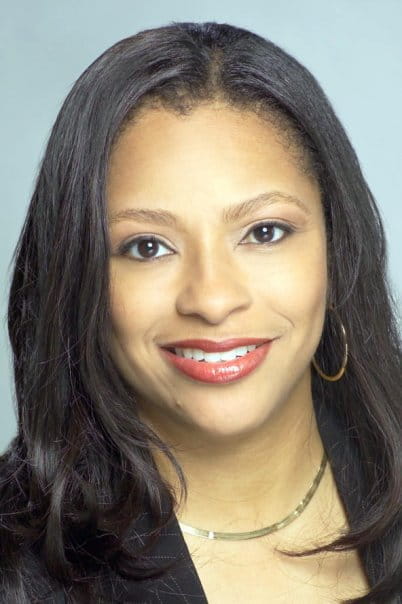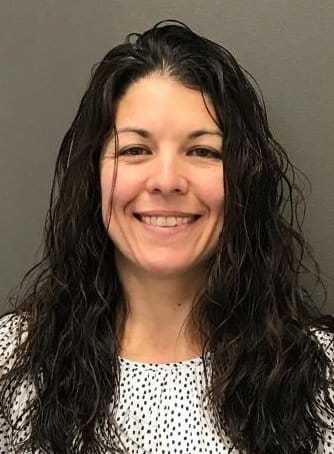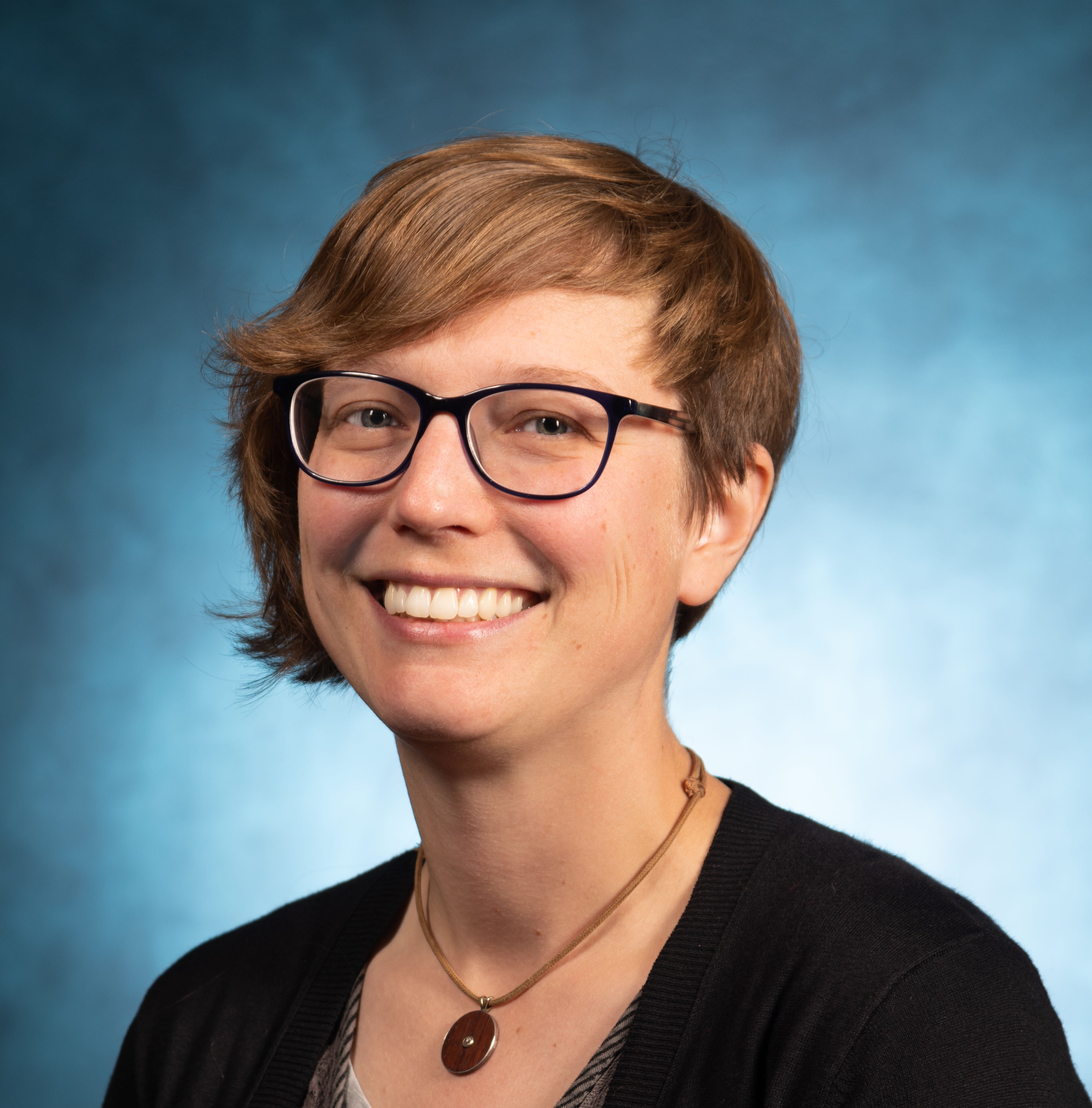The web Browser you are currently using is unsupported, and some features of this site may not work as intended. Please update to a modern browser such as Chrome, Firefox or Edge to experience all features Michigan.gov has to offer.
On International Women's Day, MI Environment highlights women of EGLE’s Office of the Environmental Justice Public Advocate
March 08, 2024
As part of International Women’s Day, today’s edition of MI Environment looks at the three women who make up the staff of the Office of the Environmental Justice Public Advocate at the Michigan Department of Environment, Great Lakes, and Energy (EGLE). The Office works collaboratively across state government to advance Environmental Justice and equity in Michigan, as well as addressing Environmental Justice concerns and complaints.
They each answered the following questions:
- Who did you look up to early in your career or education who made a difference in your career, and what did you learn from them?
- What attracted you to this kind of work?
- Describe your typical workday.
- What advice do you have for girls and young women interested in careers related to environmental justice?
Regina Strong, Environmental Justice Public Advocate

1. My career spans more than 30 years and prior to becoming the state’s first Environmental Justice Public Advocate and leading this office, I had a long career in public relations, public affairs, and advocacy. The truth is that I am a lifelong advocate. I was first inspired by my parents, especially my mother Ruth Whaley. She was the first person I saw standing up for others, framing her advocacy and determining who had the power to facilitate change. Growing up in the 70s there were many things to advocate for and against and I was enthusiastically in the game, even as a child. My father, Arthur Whaley, was a middle school math teacher and he taught me so much about the link between loving people and fighting for them. My parents moved to Cleveland for my dad’s teaching job in the Cleveland Public Schools from Birmingham, Alabama in the 50s during the great migration.
There are many other people who impacted my work and passions in my professional life. Those people include a man named Gerald Lundy who brought me into my first public relations agency job and taught me so much about working with a wide range of clients and industries. Pamela Martin Turner who taught me all about advocating for affordable housing and working directly with impacted communities and environmental justice warrior Rhonda Anderson who taught me all about how people are impacted disproportionately by our environment and governmental actions, as well as the importance of letting communities speak for themselves. I have never forgotten these mentors who helped frame the way I do the work I do advocating internally and externally to address environmental injustices.
2. Again, I am a lifelong advocate. As a Black woman growing up in America, I have seen a great deal of injustice play out in my community, as well as other communities. So, fighting for justice and equity is part of who I am. I have led departments in corporate America and led nonprofit organizations, but I found my true passions are rooted in serving others. That’s why I take my work so seriously and why leading the state’s work toward achieving environmental justice is so important to me.
3. Typical?? There really is no typical day in my work. Of course, everyday there are meetings, conversations, strategy sessions and endless email review and response opportunities. Working with communities throughout the state often requires in-person meetings, both planned and impromptu. In addition, there are community concerns and conversations related to those concerns that I engage in daily. Overall, the work of my office is very dynamic and broad ranging, so every day is a new adventure.
4. I encourage them to pay attention to what brings them joy and ignites their passions. If working to address environmental challenges is among those passions, as well as working directly with impacted communities then working to address environmental injustices might be for them. However, the work is not for the faint of heart. It is demanding and engaging work that incorporates a wide spectrum of issues and opportunities and requires the ability to work with a wide range of people. Developing your ability to work well with all people is an important part of a career in environmental justice.
Katie Lambeth, Environmental Justice and Tribal Liaison

1. One of my undergrad professors Greg Howard probably had the biggest impact on my education. He inspired me to seek out knowledge beyond what I was learning in the classroom and introduced me to environmental justice.
2. This work combines my passion for the environment and social justice issues. I am also very interested in the policy side of the work.
3. A typical workday mainly consists of working on my computer and attending meetings. In terms of the types of things I am working on, I don’t have a typical workday. One of the things I enjoy about my job is that I am able to be involved in a wide range of projects and issues.
4. My advice would be to take advantage of as many opportunities as possible to work with different people and projects. Be willing to challenge the status quo and think creatively towards solutions to environmental justice issues.
Kate Hutchens, Environmental Justice Coordinator

1. One person I really looked up to in college was my stage management professor, Nancy Uffner (I switched to majoring in theatre after I saw how much economics was required for environmental studies - I was young!). Nancy taught me the fundamentals of project management and was a role model for how to be a professional and a teacher while also showing up as a human in community with other humans.
2. I came to environmental justice work mainly through learning the stories of various struggles, and by discerning how environmental justice sits at the nexus of a lot of different things I felt called and capable to do. I was attracted to this particular job by the chance to work across my home state in a role that is both collaborative and primarily behind the scenes.
3. I typically spend much of my day in front of my computer, with one or more virtual meetings every day. Most weeks I also have two or three in-person meetings with colleagues or community partners. I develop plans/designs for a variety of initiatives, plan and facilitate meetings, track project progress, respond to questions and concerns from the public, and try to keep up on emerging info (via webinars, reading reports, etc.). In short, it's a lot of slide decks, emails, note-taking, and spreadsheets!
4. Learn about the leadership, vision, and impacts of generations of Black women, indigenous women, and other women of color in environmental justice movements. Whoever you are as an individual, recognize and value how your own life experience has shaped your perspectives and skills, and recognize and value that same truth for others. And while you develop your analytical skills and knowledge of EJ history and policy, also take responsibility for your own antiracism learning.